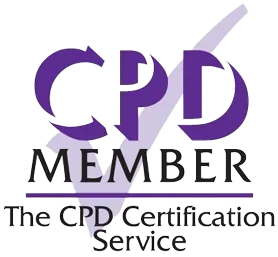29 Mar 2025
Recommended
Minimum 30 mins
Course
Access
Certification
Voiceover

Motor Neurone Disease (MND) is a progressive neurological condition that significantly impacts voluntary muscle movement, speech, swallowing, and breathing, leading to profound challenges for patients and their families. The MND Awareness course is designed for healthcare professionals, carers, and support staff, offering a detailed understanding of the disease, its progression, and its broader implications.
This course provides insights into the types of MND, including Amyotrophic Lateral Sclerosis (ALS), Primary Lateral Sclerosis (PLS), and Progressive Muscular Atrophy (PMA), as well as the pathophysiological mechanisms underlying the condition. It covers symptom recognition, diagnostic approaches, and evidence-based management strategies, with a strong focus on multidisciplinary care. Participants will also explore the physical, emotional, and social impacts of MND, as well as the essential role of palliative care and psychosocial support.
Aligned with UK guidelines, this course equips participants with the knowledge and skills to deliver high-quality, compassionate care, empowering patients and families to navigate the complexities of MND while maintaining dignity and quality of life.

 £20
£20
Learning Outcomes.
By the end of this course,participants will be able:
To understand the definition, types, epidemiology, and prevalence of Motor Neurone Disease (MND) in the UK.
To explain the pathophysiology of MND, including mechanisms of neuronal degeneration and contributing genetic and environmental factors.
To identify early signs, symptoms, and the progression of MND, as well as its physical, emotional, and social impact.
To evaluate diagnostic criteria, differential diagnoses, and the role of multidisciplinary assessments in accurate diagnosis.
To explore evidence-based symptom management strategies, including therapeutic interventions, medications, and advanced treatments.
To recognise the importance of a multidisciplinary approach, including palliative care, psychosocial support, and patient and family education.
Course
Contents.
01
Definition, types (ALS, PLS, PMA), epidemiology, and UK prevalence.
03
Early signs, symptom progression, and the impact on patients and families.
05
Physical, psychological, and social effects on patients and caregivers.
08
Holistic approaches, end-of-life planning, and psychosocial support.

06
Evidence-based symptom management, therapeutic interventions, and medications.
09
Empowering individuals through knowledge, resources, and communication strategies.
02
Mechanisms of neuronal degeneration, and genetic and environmental contributions.
04
Criteria, differential diagnoses, and the role of multidisciplinary evaluations.
07
Coordinated roles of healthcare teams and service integration.
This course provides healthcare professionals with a comprehensive understanding of Motor Neurone Disease (MND), focusing on its progression, management, and impact. By exploring diagnostic tools, therapeutic options, and the importance of multidisciplinary collaboration, participants will be equipped to deliver compassionate, evidence-based care. The course highlights the value of patient and family education and support, promoting dignity and improving the quality of life for those affected by MND.
 Summary
Summary


